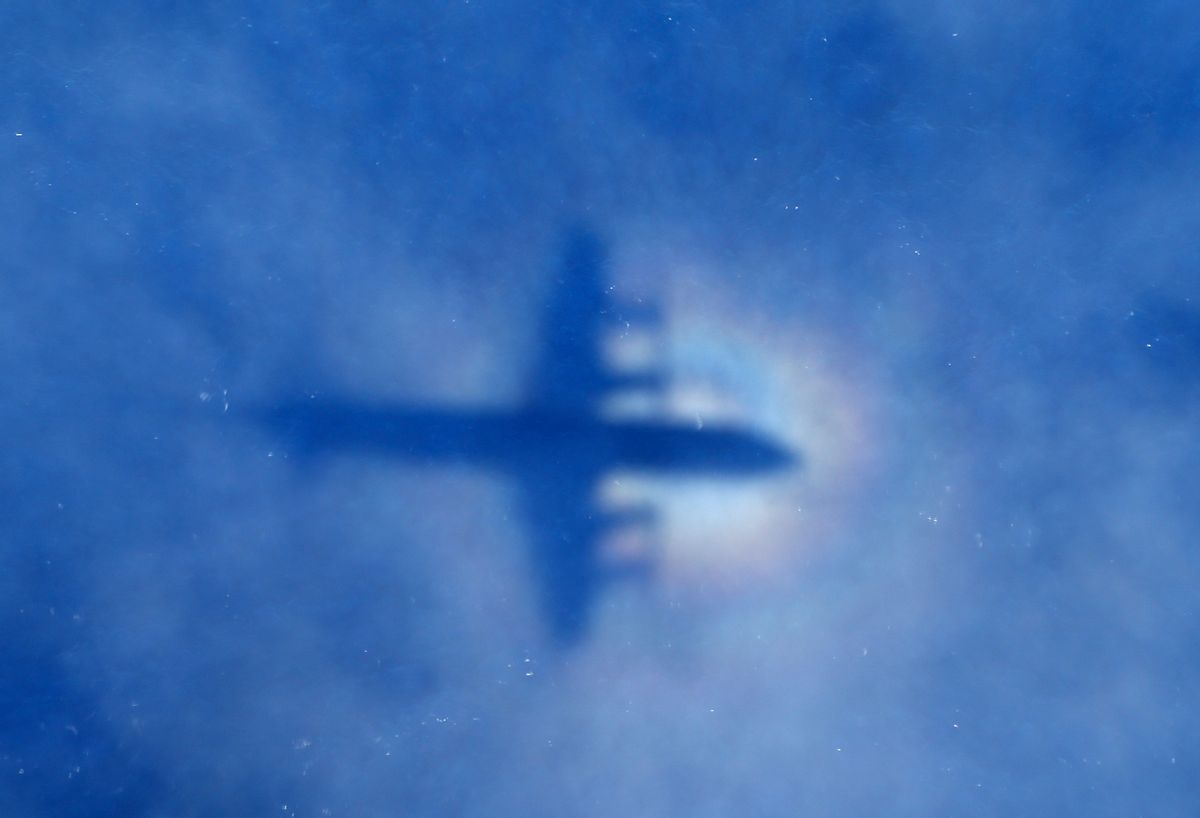A new report from Malaysia's Ministry of Transport, deepens the mystery of what happened to Malaysia Airlines flight MH370. The report shows that there was a four hour lag between officials noticing that the plane disappeared from the radar, and the dispatching of a search and rescue team.
Flight MH370 has now been missing for 55 days. It vanished during on March 8, during a routine flight from Kuala Lumpur to Beijing. Satellite data shows that the plane made a sharp turn westward, and officials believe it ended in the southern Indian Ocean. An international search team, helmed by Australia, has been combing a swath of sea, northwest of Perth, for the wreckage. No debris has been found thus far.
Apart from the odd delay in sending out search and rescue teams, the report contains no eye-popping surprises, or further insight into the crash. As of the report's completion 26 countries had participated in the search that consisted of 82 aircraft and 84 ships.
The report also makes the strong recommendation to introduce "a standard for real time tracking of commercial air transport aircraft."
In the meantime the underwater search continues. The U.S. Navy autonomous underwater vehicle, Bluefin-21 has completed its original search area (a circular zone with a diameter of 12 miles), and will continue to be utilized in other areas. In a statement made on April 28, Australian Prime Minister Tony Abbott called the search "the most difficult search in human history." He also laid out next steps for the search in a speech. Parts of that transcript is below:
"What we have been doing, as you know, for the last few weeks is focusing on the best lead we had, which was based on detections by the towed black box locator deployed from the Australian Defence vessel Ocean Shield. We have now searched close to 400 square kilometres under sea.
I am now required to say to you that it is highly unlikely, at this stage, that we will find any aircraft debris on the ocean surface. By this stage, 52 days into the search, most material would have become water logged and sunk. And with the distances involved, all of the aircraft are operating at close to the limit of sensible and safe operation. Therefore, we are moving from the current phase to a phase which is focused on searching the ocean floor over a much larger area.
Along with announcing the end of the visual search for floating debris, Prime Minister Abbot outlined the coming underwater operation:
"What we are going to do, though, is enter a new phase of search focusing under the sea. The Bluefin-21 submersible will continue in operation. What we are doing, though, is looking to an intensified underwater search involving different technology, in particular using specialised side scan sonar equipment towed behind ships to scan the seabed for evidence of aircraft wreckage.
The Australian Government, in consultation with the Malaysian Government, is willing to engage one or more commercial companies to undertake this work and this work would be done under contract to the Australian Government. We will continue to work closely with Malaysia and with China in taking this operation forward."
Families of the 239 people aboard the flight have also been encouraged to head home. In a statement from Malaysia Airlines they were told:
"While Malaysia Airlines is committed to continuing its support to the families during the whole process, we are adjusting the mode of services and support. Instead of staying in hotels, the families of MH370 are advised to receive information updates on the progress of the search and investigation and other support by Malaysia Airlines within the comfort of their own homes, with the support and care of their families and friends."
Relations between the Malaysian government and Malaysia Airlines with the families of those missing has been one characterized by anger and poor communication. Family members have been sharply critical of how the airline and government have handled the crisis. Shortly after it was announced (to some family members via text message) that the plane ended in the Indian Ocean, families in Beijing protested at the Malaysian Embassy.

Shares